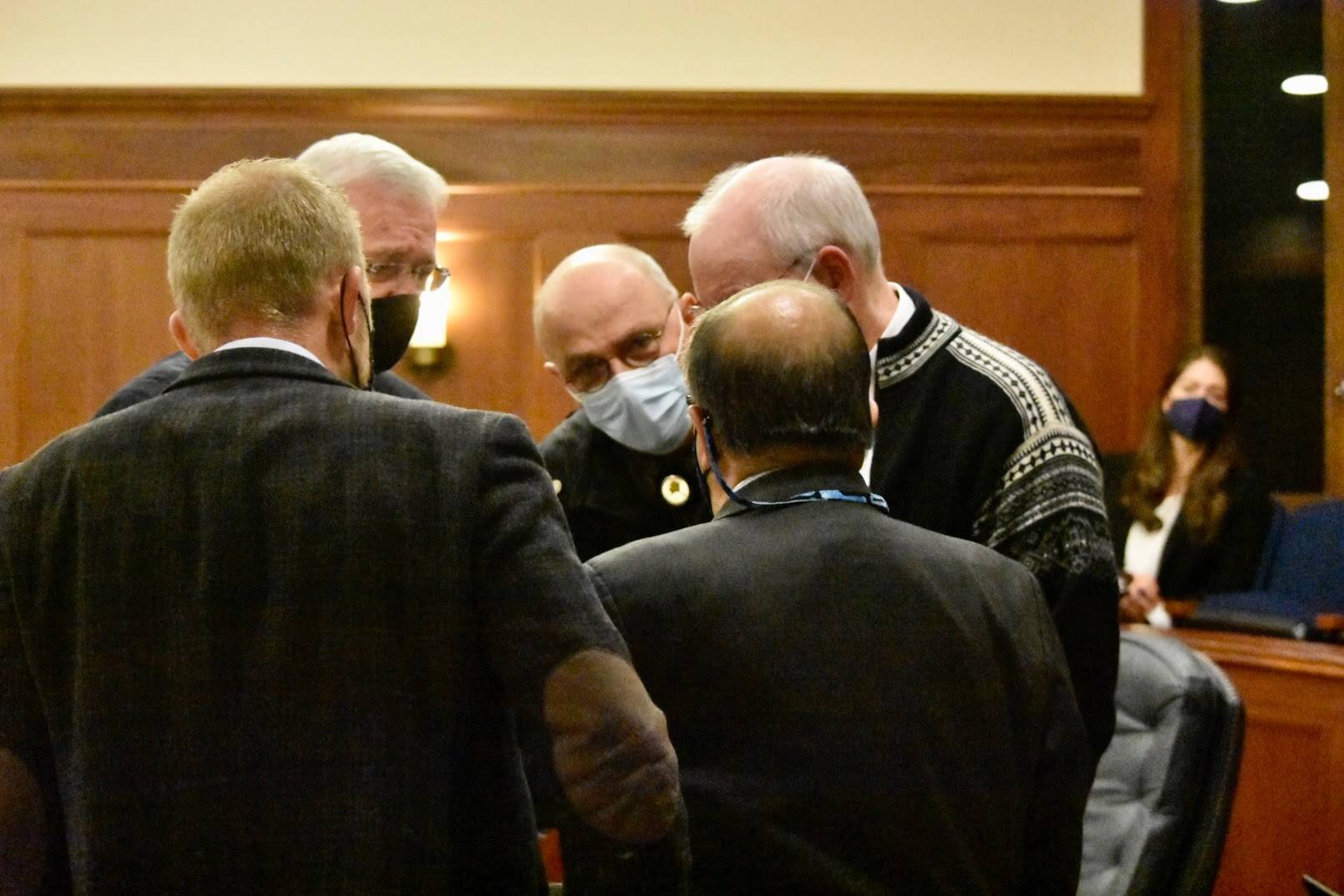On the last day of its third special session, the Alaska State Legislature passed an appropriations bill allocating $1,100 for an Alaska Permanent Fund dividend.
The bill now goes to Gov. Mike Dunleavy for approval.
The Alaska State Senate voted 12-6 Tuesday to approve an appropriations bill exactly as sent to them by the House of Representatives. Some Republican lawmakers submitted amendments that would have increased the size of the dividend, but those were both ultimately voted down. Before the Senate voted, House leadership announced they had effectively ended their portion of the session. Had the Senate changed anything in the bill, it would have required approval in the House, which can only happen during a session.
The Legislature appropriated a dividend of the same amount earlier this year, but couldn’t get enough votes to access all the funding, leaving the dividend at $550. The governor vetoed that amount, calling it “a joke” and bringing lawmakers back into session.
In a statement shared Tuesday evening, Dunleavy said he does not intend to veto the PFD and called for a fourth special session to convene in October.
Complicating matters, the dividend’s fund sources are split, with a portion of the funds coming from the Statutory Budget Reserve ,which has traditionally required a three-quarter vote of the Legislature to access. But a recent court case has thrown that into question, and both the governor and legislative leadership have said the matter may go to the courts. Without the SBR funding, this year’s dividend would be about $600.
Deep divisions
The Legislature effectively finished its business Tuesday, but many lawmakers were deeply unsatisfied with its results. Many Republican lawmakers in favor of a larger PFD said they felt sidelined, and complained that little progress had been made on fixing the state’s underlying fiscal issues.
“I’m tired of getting slow rolled,” said. Sen. Mike Shower, R-Wasilla.
The original purpose of the August special session was to find resolutions to fiscal issues, but lawmakers were deeply divided over exactly how to pursue resolution to those issues. A fiscal policy working group drafted a broad set of recommendations for lawmakers to negotiate around, but lawmakers are still deeply divided over some critical issues.
Following the appropriations vote, senators began debating a non-binding bill establishing intent on the Alaska Permanent Fund. The bill originally came from the governor, but Sen. Lyman Hoffman, D-Bethel, submitted an amendment that would have called for up to $700 million in new revenues and slowly increased the size of the dividend over five years. That bill was eventually tabled.
The governor and many Republican lawmakers want to see the dividend enshrined in the state constitution. Dunleavy has submitted an amendment that would do that, while guaranteeing that 50% of the annual percent of market value draw from the Alaska Permanent Fund be used for dividends. But many lawmakers, including some Republicans, are wary of constitutionalizing a dividend payment.
Following the Senate vote, House Speaker Louise Stutes, R-Kodiak, said in a meeting with reporters she didn’t believe there was support in the Legislature for the governor’s plan. Stutes told reporters she had just come from speaking with Dunleavy to discuss the possibility of yet another special session.
“I believe there will be (another) special session,” Stutes said.
She had asked the governor to give lawmakers a few weeks in between sessions to recuperate, to which she said the governor sounded receptive. Lawmakers can vote to continue working on bills introduced in special sessions, Stutes said, and the fiscal policy bills introduced in August could be taken up in the next session.
Stutes said her recent talk with the governor was productive, but added the House was ready to take legal action if Dunleavy’s office decided to challenge the use of SBR funding. A recent court ruling regarding a state accounting mechanism known, as the sweep, has raised questions about which state funds are susceptible.
“We believe that the SBR is not sweepable,” Stutes said, “and we hope and we feel confident that maybe on reassessment (the governor) will take a second look at it.”
Contact reporter Peter Segall at psegall@juneauempire.com. Follow him on Twitter at @SegallJnuEmpire.


